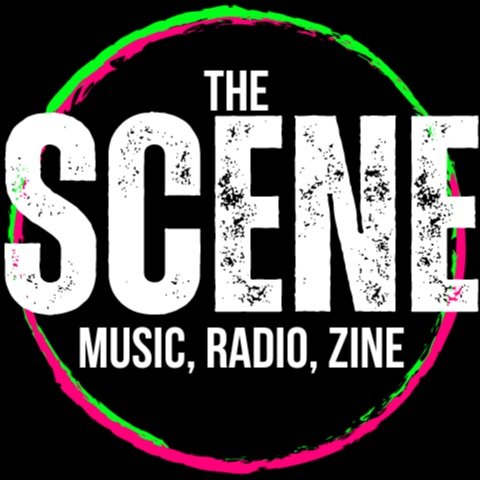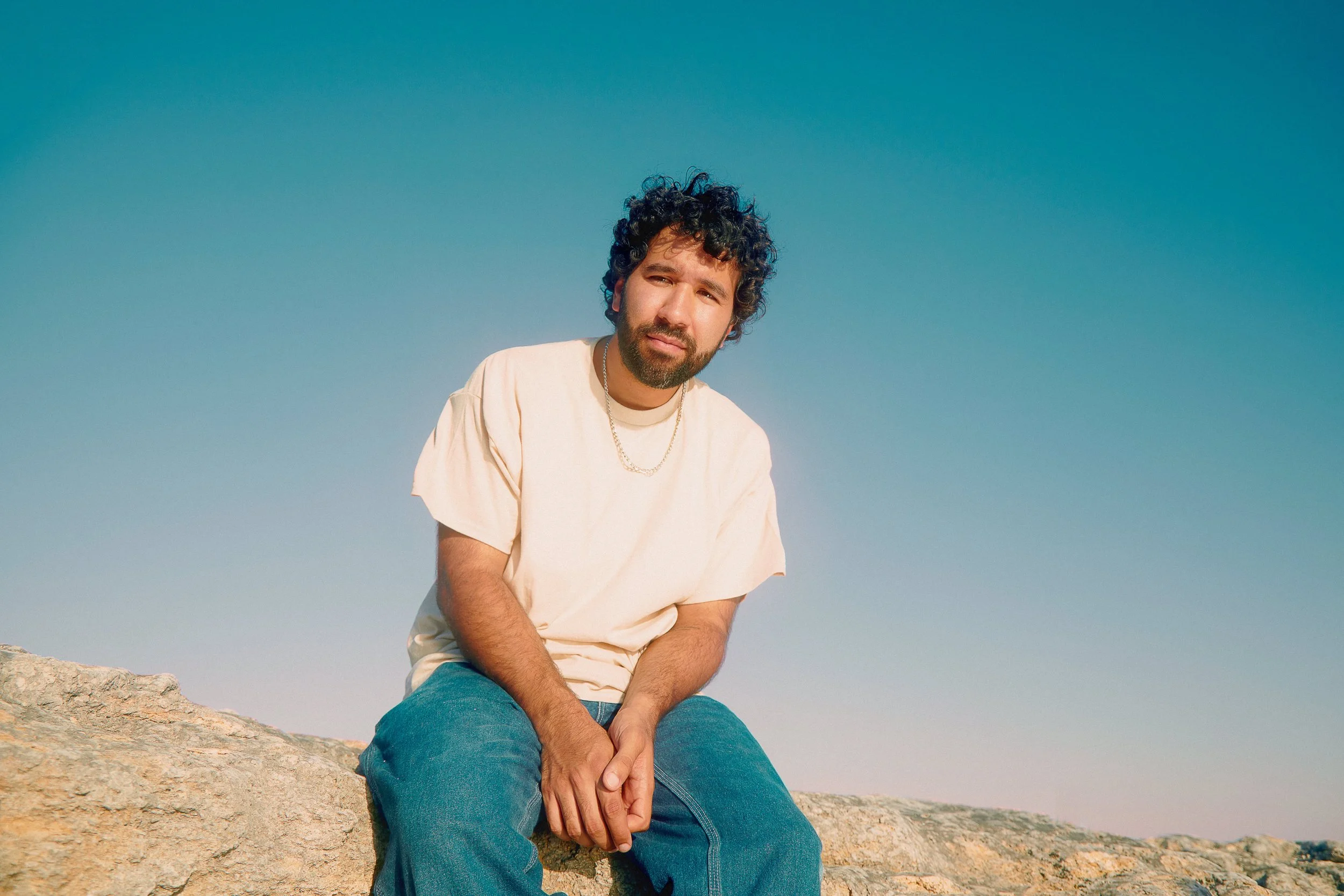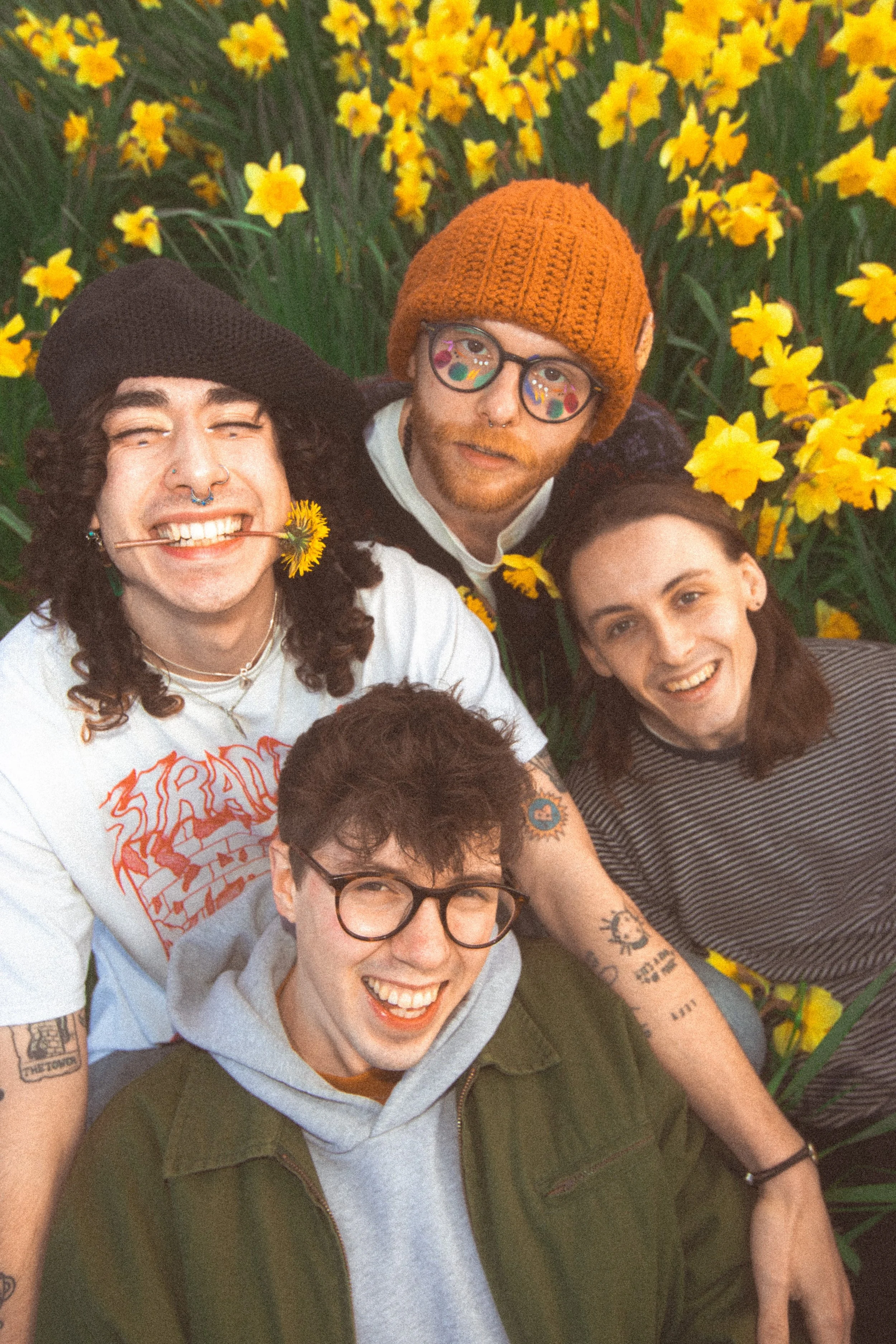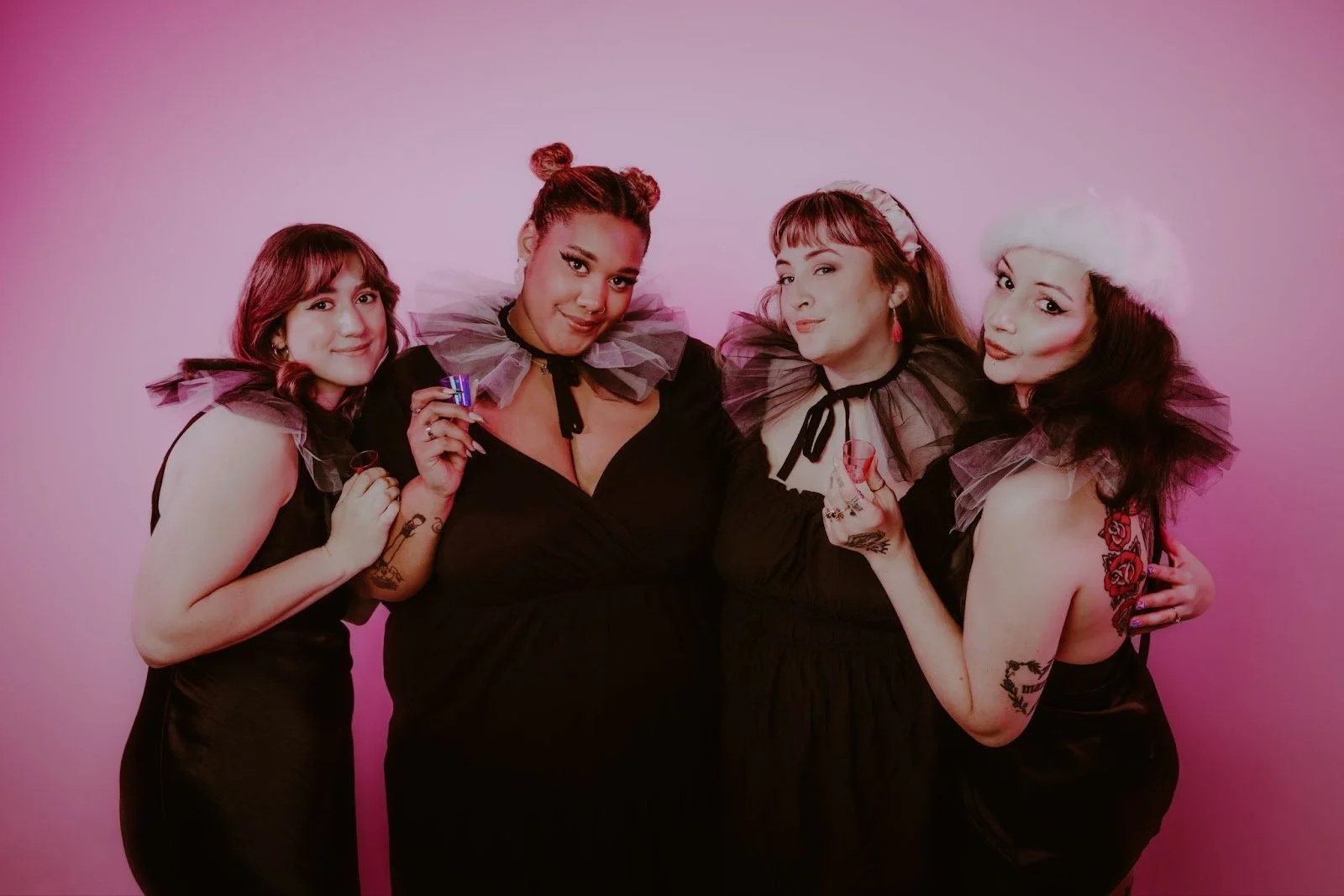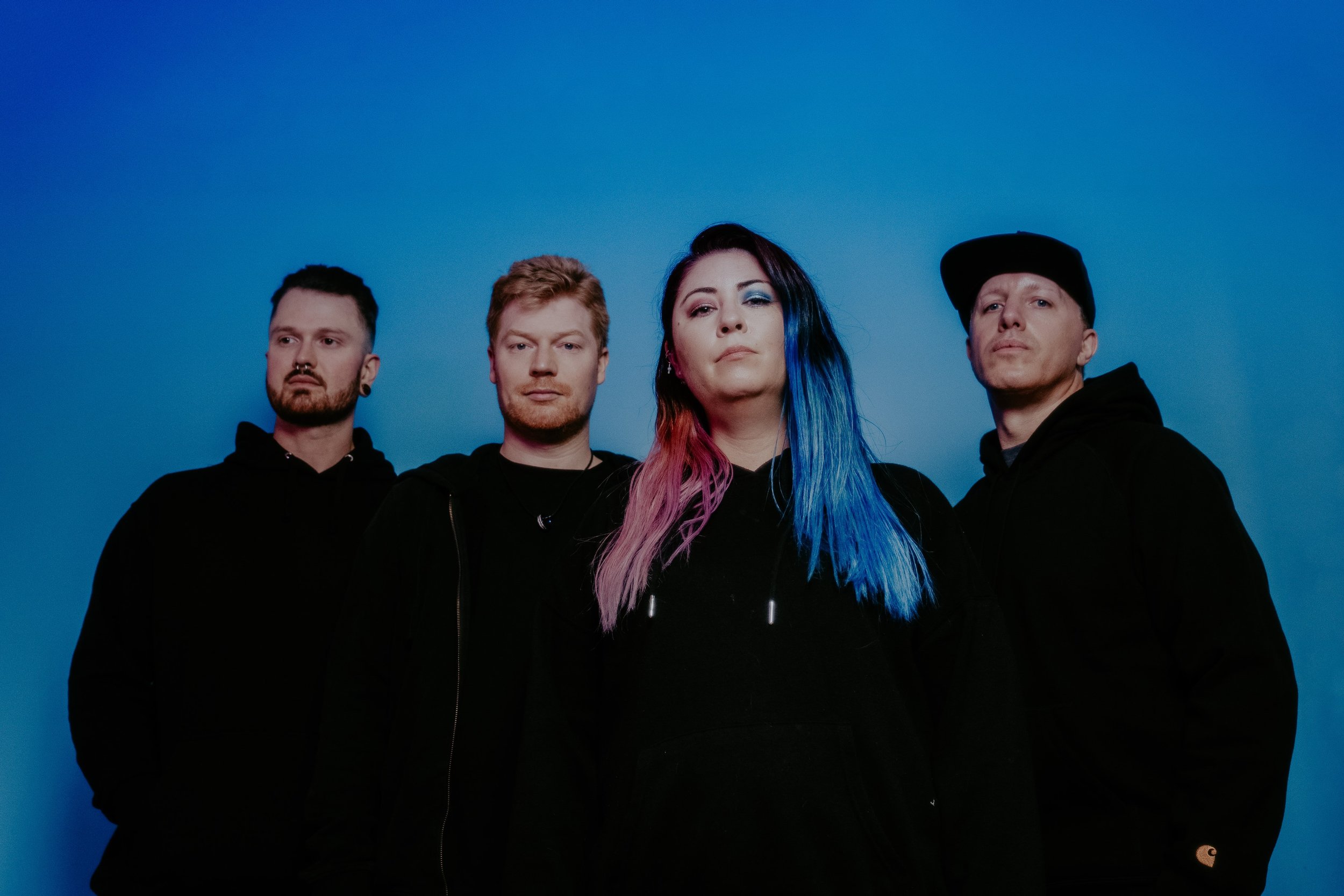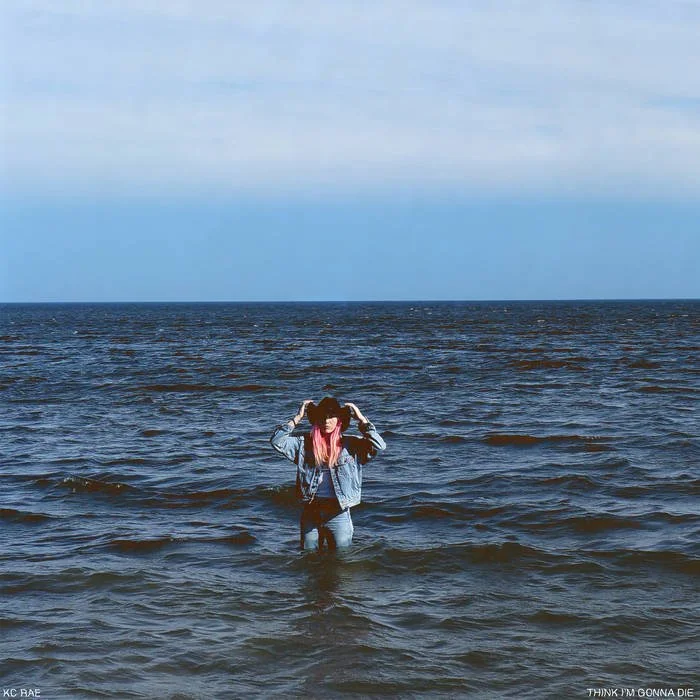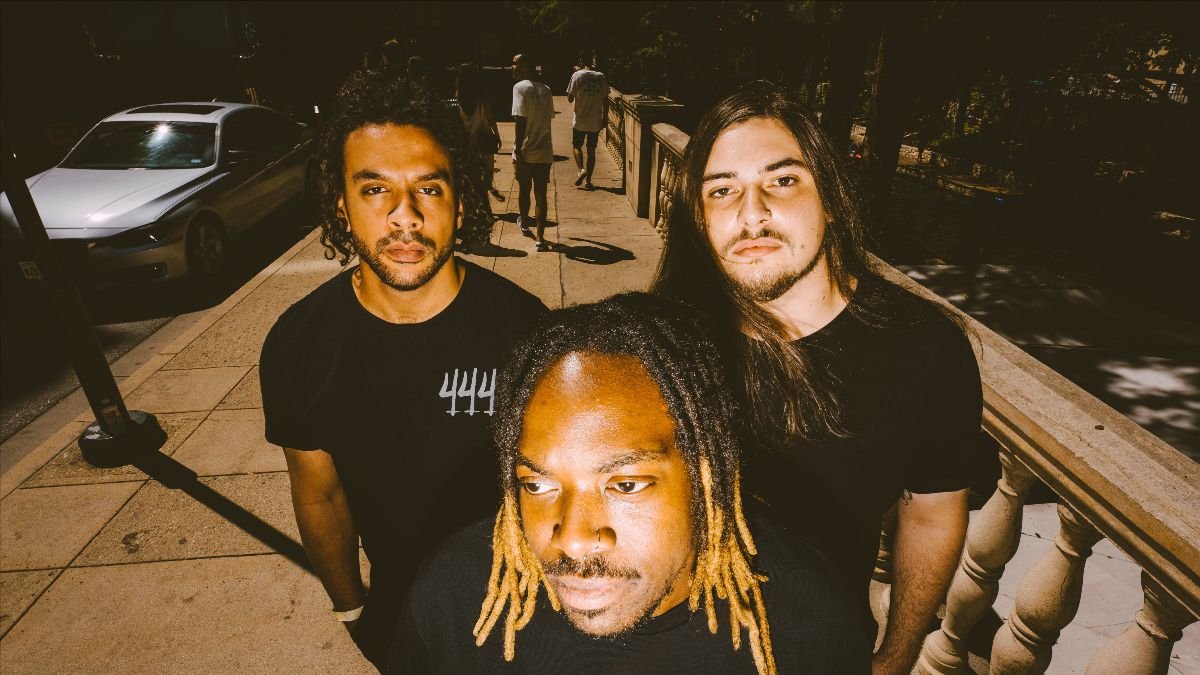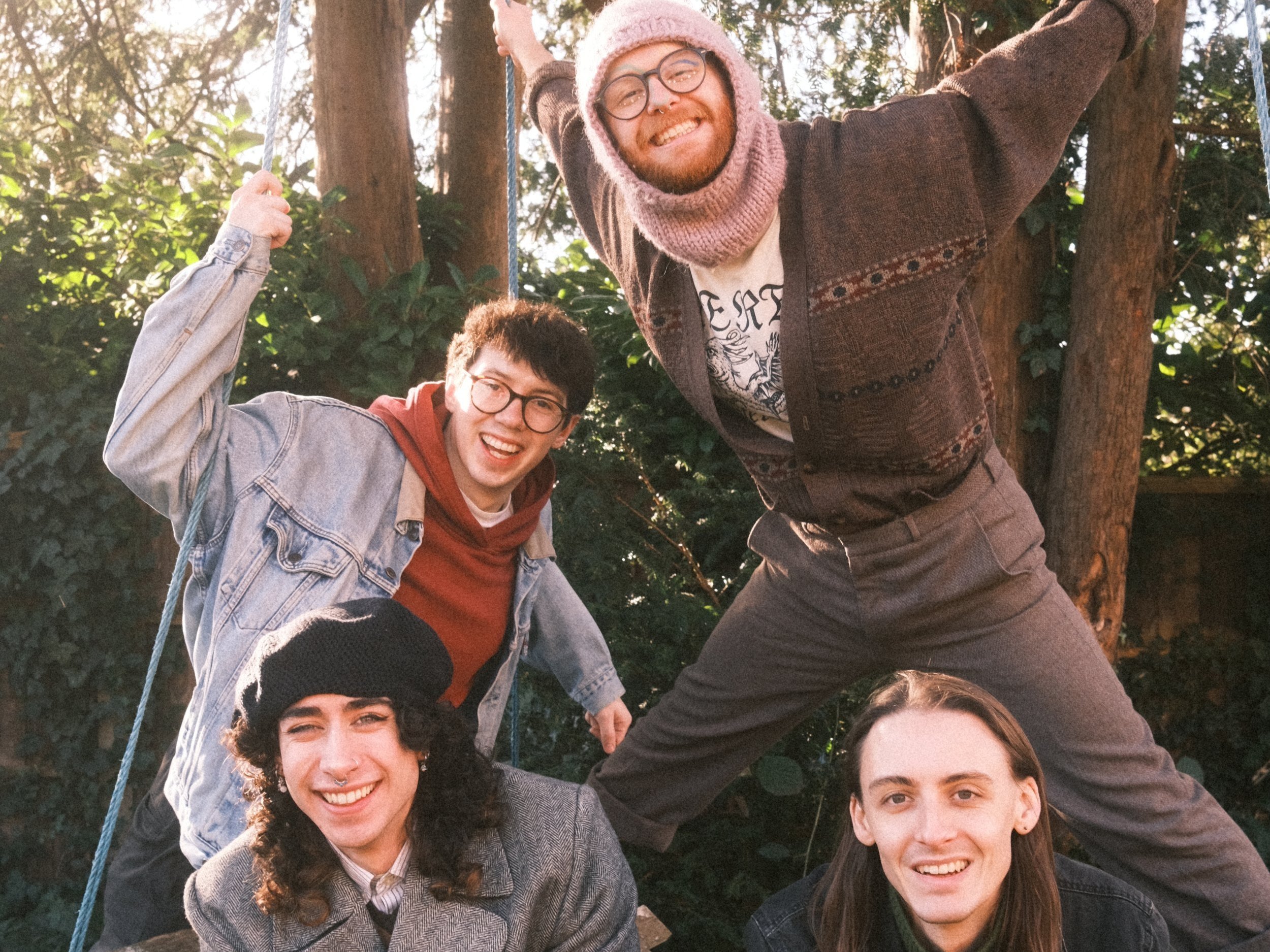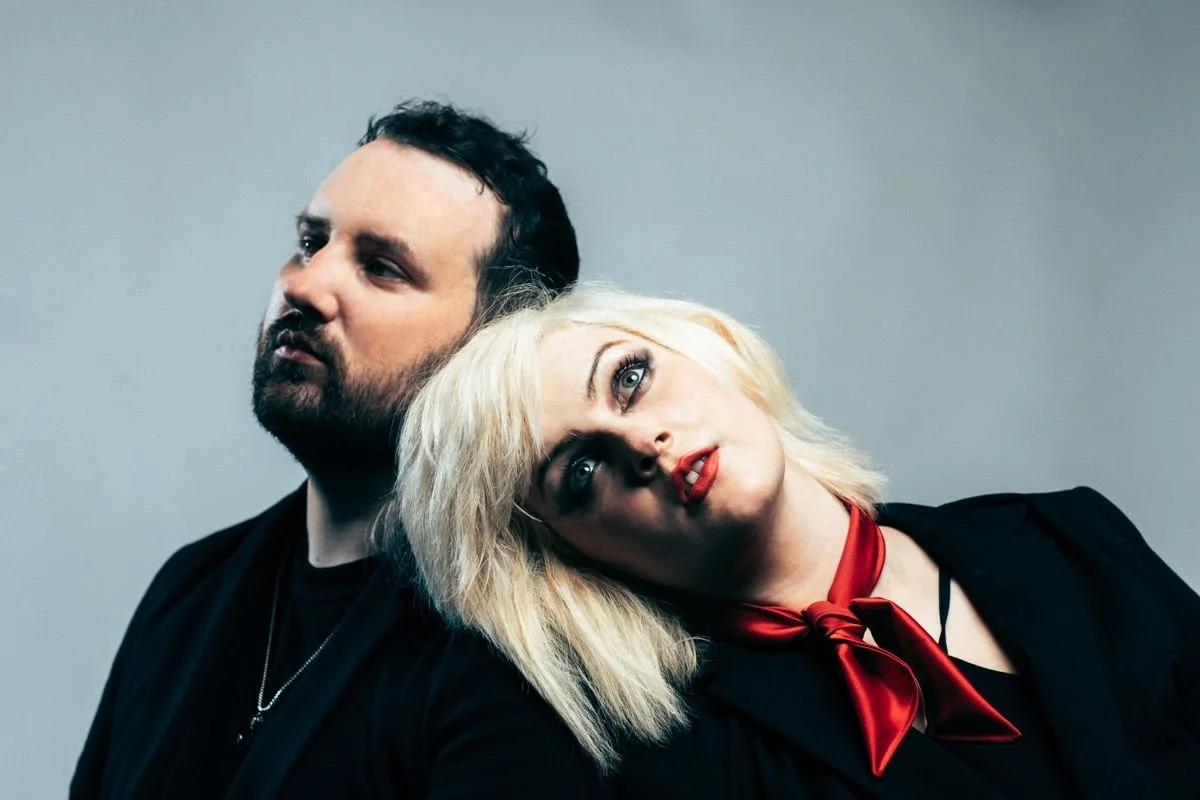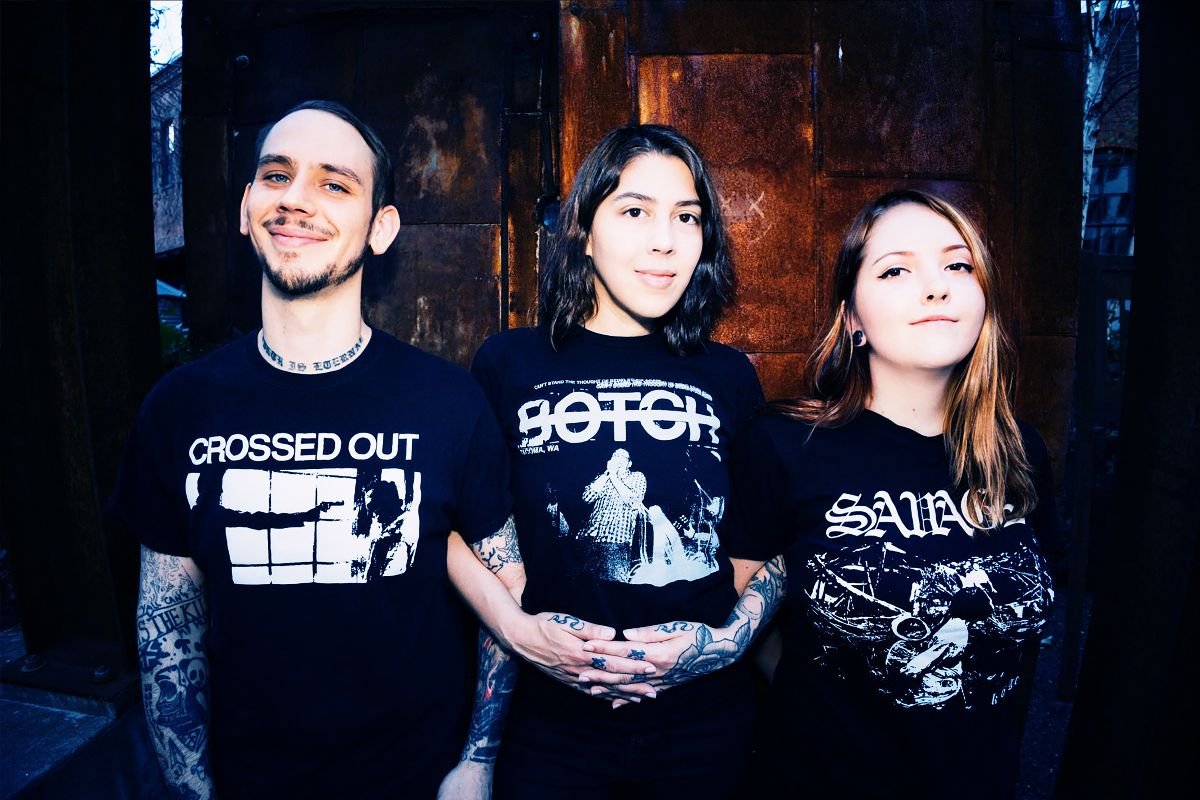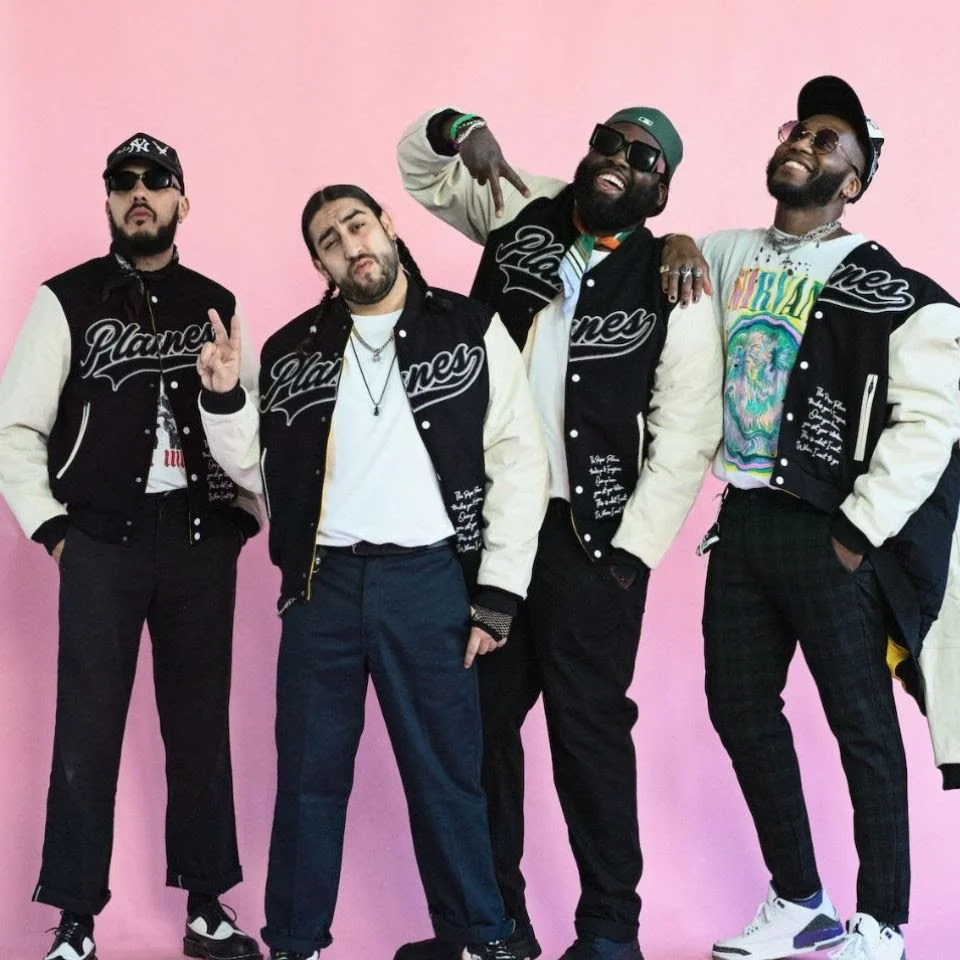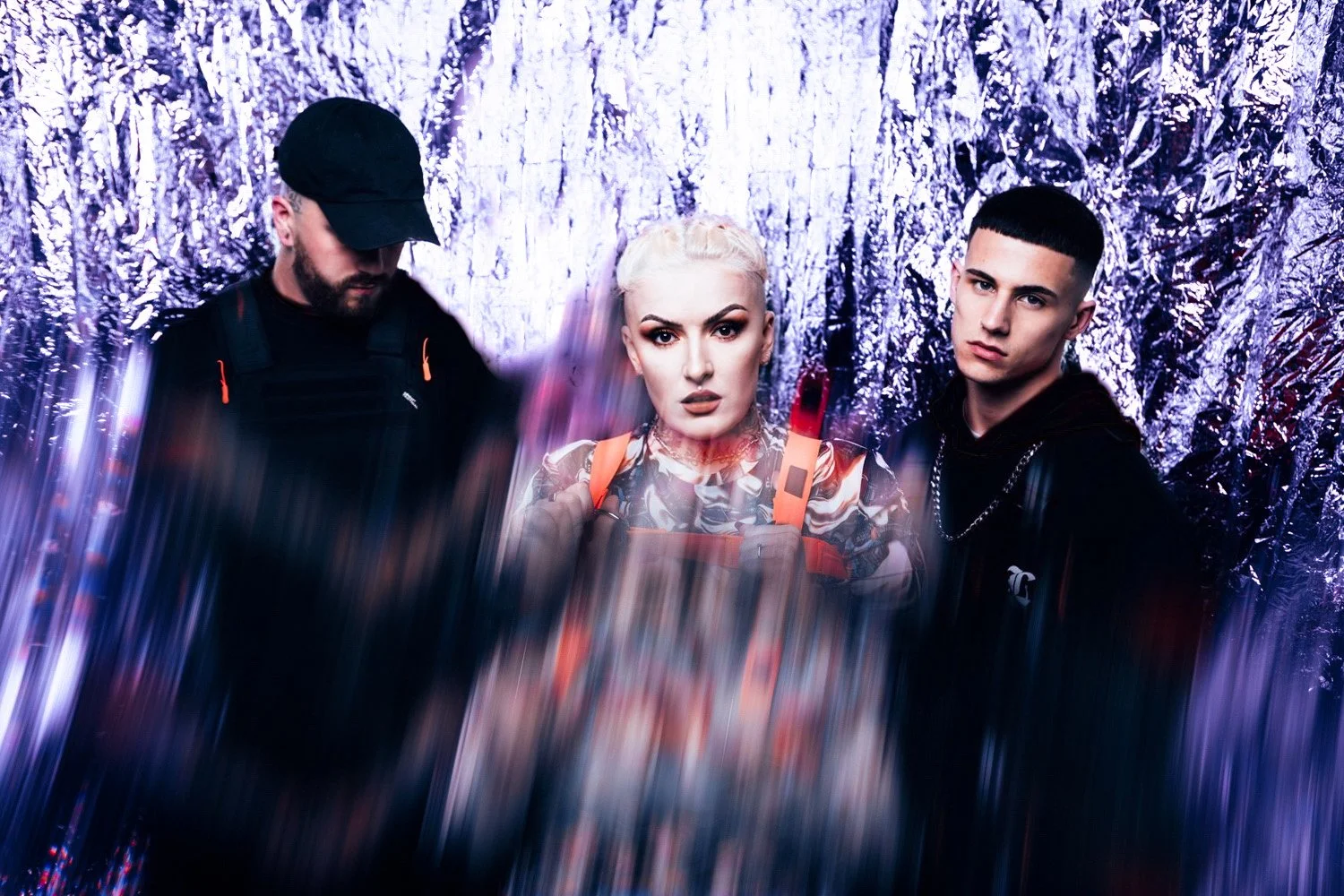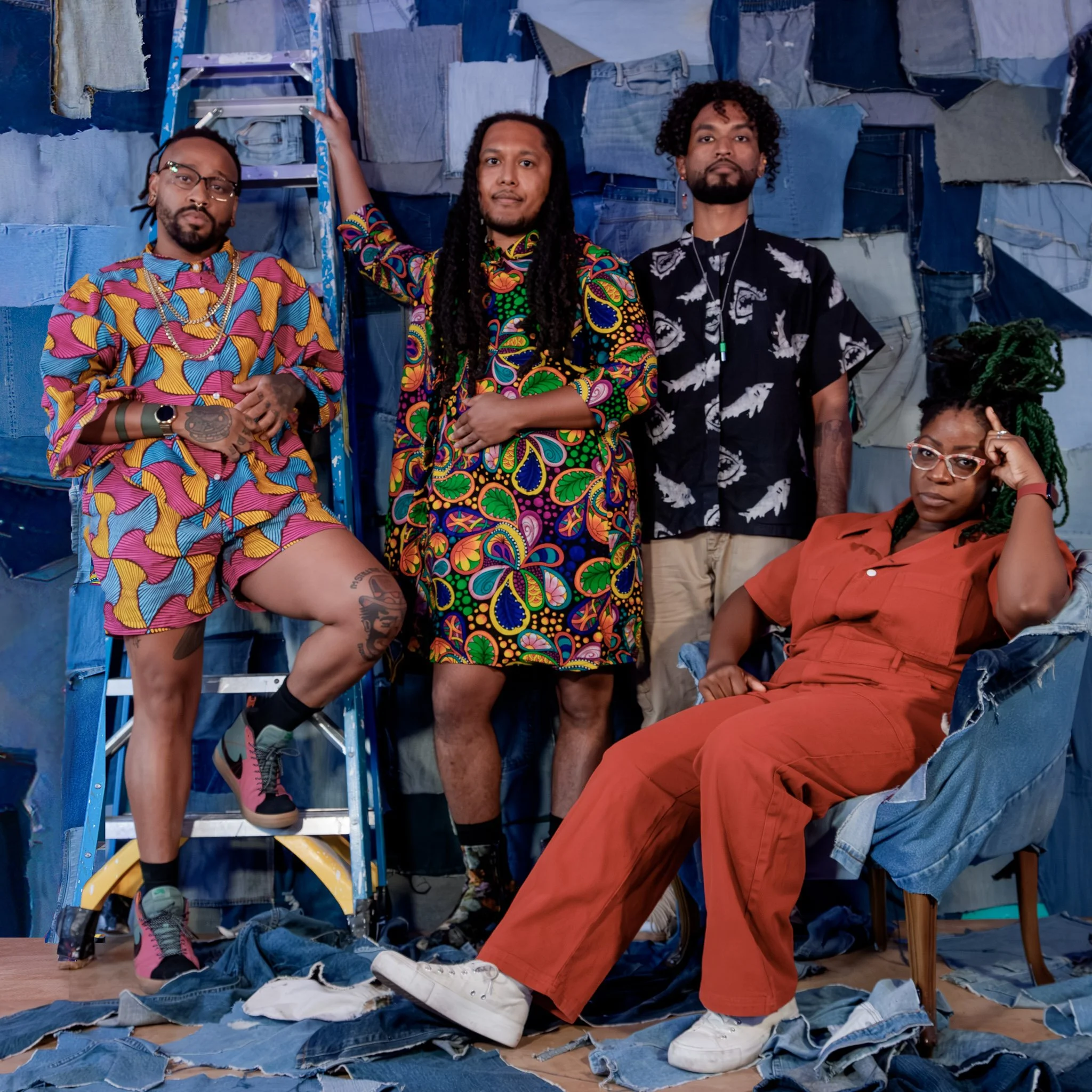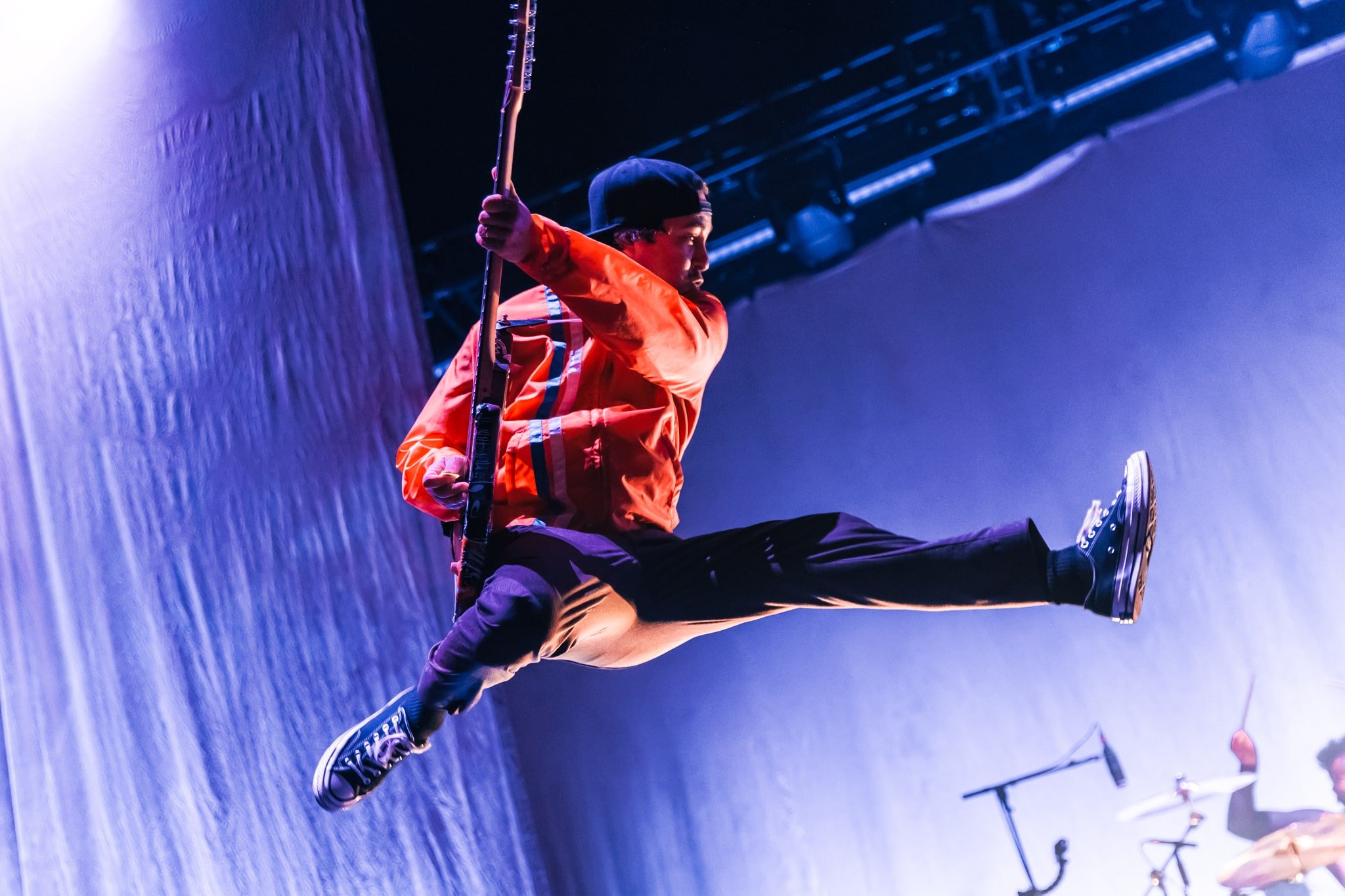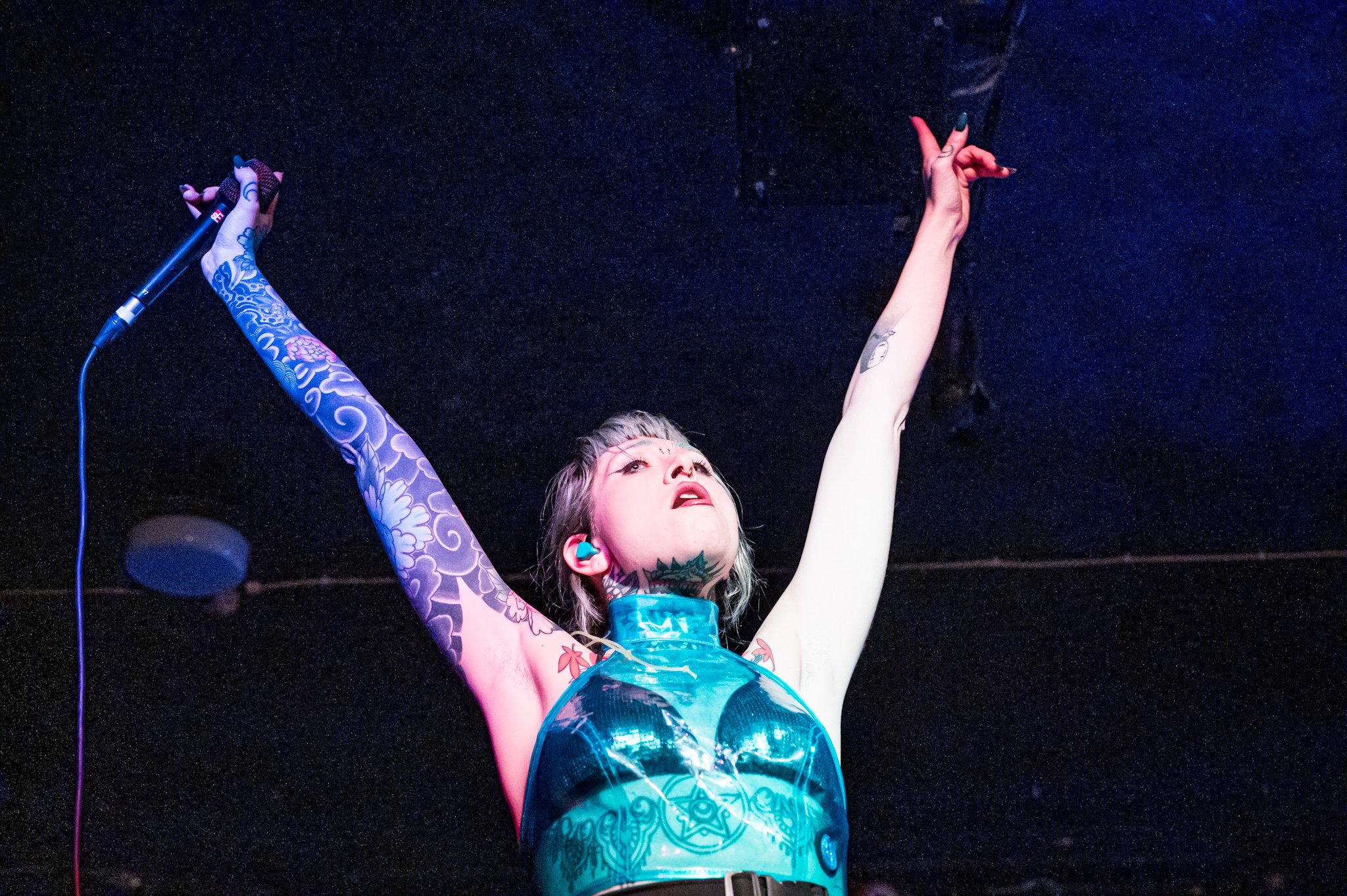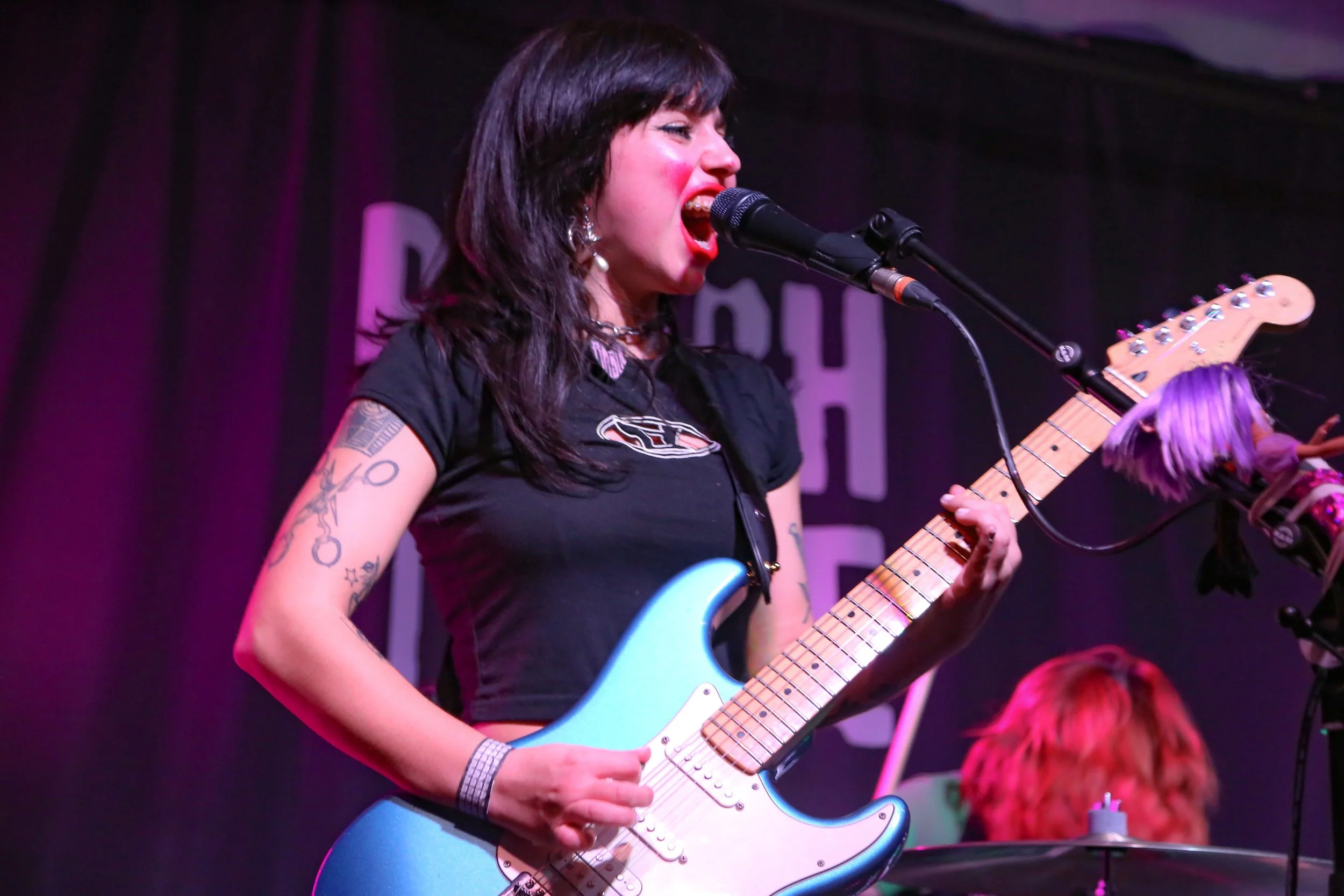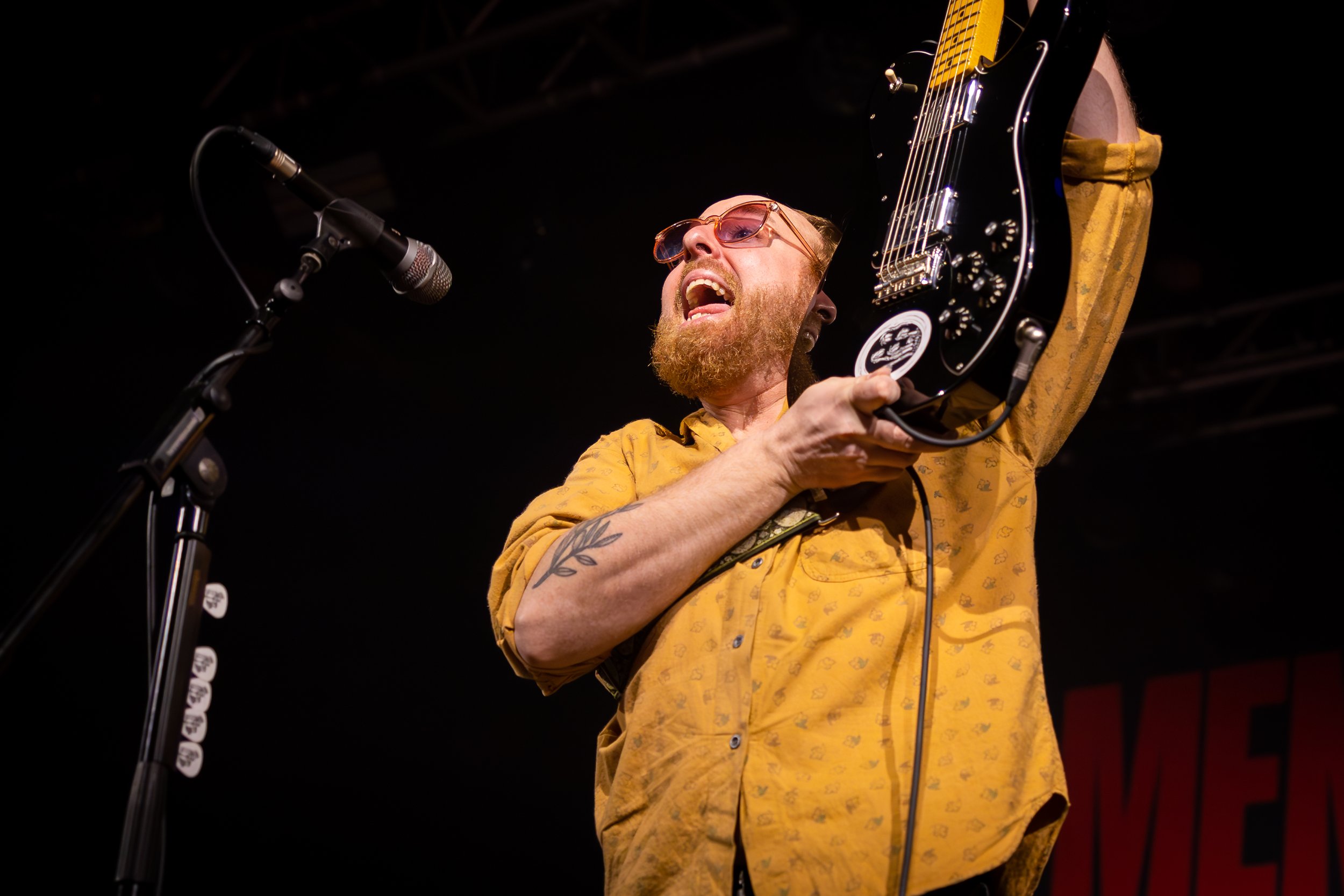Interview: Slow Joy
Slow Joy by Cydney Holm
I was sitting in bed. Groovy tunes blasted through the Sonos while I wrote yet another review late into the evening. When Thom appeared at the door, expressionless, clearly attempting to mask something. “Stop. Put this on.” With the good Sonos busy, Spotify logged out on my laptop - and who can ever remember their password - my only option was Youtube through tinny laptop speakers. Not ideal, not only for sound quality but also I don’t like to watch videos when experiencing new music. But at his uncommonly direct behest, my only option.
The song in question - “I Don’t Hate You”. The video - a soft voice, a bearded guy with big puppy eyes, sitting in a bathtub, singing over a gently strummed guitar. Before punching you in the gut at 27 seconds.
I gasped. Eyes welled. What is this?
This is Slow Joy, an upcoming solo project from “emo kid turned emotional man”, Esteban Flores. Hailing from the American southwest, Flores has been building a social following sharing his new music, podcast and general emo-nerdery, which is less “student / teacher” dynamic and more your homie showing you a new chord he’s stoked about.
We had the opportunity to chat with Esteban Flores about his music, his influences and the next EP coming in 2024, created with legendary producer Mike Sapone. For anyone seeking music with deep sincerity, here it is.
Thanks for sharing your time today. I’m new to you, new to your music, so for anyone just hearing Slow Joy for the first time, what can you tell us about your sound and your vibe?
“Slow Joy is something that I'm really passionate about. The internet community came up with the term "Southwest emo" and I really love it. I'm originally from New Mexico and growing up in that area - it's desert, there's not a lot going on, you have your local shows and that's pretty much it. I think the term "Southwest emo" really encompasses that. I read somewhere, someone said it's like a mixture of grunge, emo and shoegaze, and I felt super seen. So this is something that's really important to me, but in all things, I just try to make it as me as possible. You don't really get a lot of opportunities to showcase yourself in a way that's so open and it be reciprocated in a way it has been. I'm just really thankful for that.”
The "Southwest emo" idea is really interesting. Just from listening to the mixture of influence in the music and your accent, I was trying to pinpoint where you might be based, and there’s so much talk right now about old midwest emo, but also I hear West Coast and I hear Pacific Northwest. We weren't far off in our final guess, but Southwest emo is such a nice way to see it.
“It's definitely an in-betweener thing. Emo is such a weird term. A lot of times when we describe emo, people will think of My Chemical Romance, you know? That is a stadium rock band that dresses a certain way. If you get into Midwest emo, there's "a sound" but for the most part this thing is so all-encompassing that it's just emotional lyrics and things that matter. Which should be all music in general. But I just love this scene. It raised me in a lot of ways, so I'm really thankful to embrace that. But it is an interesting term because it means so many things to so many different people.”
It does. And there's so much more terminology available today. I was listening back to some of my favourite 2000s bands that are just simply classed as "indie". But if you were to pick them apart today, in this landscape, we'd get much more descriptive language. Which I remember feeling was needed back then, but was all encased in one "alternative" or "indie" bucket even when the sounds were so disparate.
“It's fascinating. You think about the fact that, for example The Pixies, was considered an indie band at one point. And then you listen to true indie rock, which isn't even independent anymore, it sounds entirely different. It's really just based on whatever wave you're on. In some ways that had a negative effect on emo. Because we had that heavily corporate-influenced version shaping a lot of people's perspectives. And now these nostalgia plays using the term. I think it really shortchanges the movements within emo. It's so much bigger than skinny jeans. I really enjoy it being a part of my story.”
You mention, "emo raised me". And I genuinely wonder about your influences, and then if you think there's any direct influence into what you're creating now?
“That's tough. Yes and no. I loved Taking Back Sunday and My Chem; that's the wave I grew up with. And then getting a little bit older and getting deeper into Sunny Day Real Estate and other bands that really started “emo”. I grew up really religious, so I wasn't allowed to listen to a ton of music. I had to sneak my way into certain things and that's how I found my own niche.
Now as an adult, I'm getting to rediscover music that I wasn't allowed to listen to. And discover it for myself with an adult brain, which is actually really exciting. I just got into Nirvana like three months ago, and it's having a massive impact on me. I just got into The Pixies like six months ago. The early 90s was such an amazing time for music; it really started this scene, which then went in so many different ways. And I think emo went that way too. If you listen to early Modest Mouse records, you could put that right next to any midwest emo record now. I love the aesthetic of midwest emo bands. Like Ben Quad are friends of mine and it's so fun to watch them do their thing. But it's not necessarily my thing. Somehow we're classed in the same world and I think that's amazing.”
I read that starting Slow Joy came off the back of a recommendation from a therapist? Is that the story?
“That's a true story. I would say I took the long way around. I'm 30 now and I'd spent most of my life working on music; trying to do that as more of a pursuit. I look back at those times as good to learn, but it was not the most honest time in my life and it just never worked. Then after my mom passed, I was in therapy and we were talking about grief. My therapist asked how I'd processed grief in the past and I said before, I would try to use music, but I really haven't for this. I'm not going to do that, music's not really a pursuit. But she suggested trying to try use music as a way to express myself and what I was going through. Which was such a novel thought to me. Make music but not to make a record? What are you talking about? So I did and that's where the song "Crawling" came from, and a lot of the music on Wildflower.
Then I started making videos on Tiktok and built a little community of people. I liked the idea of Tiktok a lot because it was not my friends on the internet. It was different people and the only thing bringing us together is a shared interest. So I started sharing videos, people started connecting with it and it pulled me “back in”. But I was fully ready to never play music again. I think that's part of the reason why it's called Slow Joy. It's a reminder that the things that change quickly are usually for the worst. Things that take a long time to build are usually for the better. I had just gone through a period of life with a lot of really bad, quick change. And then this thing slowly enveloped and created its own stuff. It's a real reminder to me to be honest.”
Moving from being fully ready to not pursue music, to creating something incredibly personal, what then led you to the decision to share this music?
“Whenever I make music, I'm going to share it eventually. Anytime I make art, I want to share it. It was never a question of whether or not I was going to share it, it was a question of whether or not people were ever going to listen to it and me being okay with that. This was the first time in my life that it didn't matter to me if nobody listened; this is a thing that matters to me and I want it to exist in a space.
But when people would ask me if I was still doing music, I would just say no, because it wasn't a pursuit anymore. And I think that's the time when the universe finally let it back in. Now you can have it because you don't need it for your existence. And I'm glad it's happening to me now. I look back at those early years and just think, if it had happened then I would not have been not a good person. It's good to know myself and know what failure looks like, which is actually really dope. If "failure" is getting a full time job, having weekends, going on vacations and just living a normal life...that was not bad. If this thing doesn't work out, I don't need it to exist.”
You mention that you always want to share the art that you create. Some artists try not to think about what other people get out of listening to their music or experiencing their art. This being a very personal process for you, is there anything you would hope people take away with them?
“Yeah, I want people to take what they take. I think the experiences that I'm talking about in the EP are really tough; it's very vocal about my mom passing from an overdose. You feel very alone in those scenarios and I would want anyone listening to the music to feel less alone. I travelled the US this year, and in every show there have been people sharing that they’ve had a very similar experience. It's common and it's definitely important to reach out.
Even if it's just to escape for a second, or to feel like you belong and there are words that you really connect to, then that's great. People putting their own story into my story is really important to me.”
I've been listening to the Wildflower EP and the lyrics start to make a bit more sense as you share more of your story and the meanings. What else can you tell us about that EP?
“It's definitely diving completely into that; what that time was and what that season was. As well as "I Don't Hate You" [a single released in September, following the EP in June] which is like the last little stamp on the Wildflower era. Where I don't really want to continue to dredge up those things all the time; I wanted to process through it and let it exist.
Wildflower and the single were processing through those things, the acceptance of it and understanding it. "Crawl II" - second to the song "Crawling", a more melancholic, sad, no hope kind of song - is more accepting and forgiving of this experience. As well as the other songs being different moments of feeling. It's not a linear path, and even in the writing that's how it felt.
My mom's name is Rose and our last name is Flores, so there's a lot of flower things in my life. “Wildflower” was kind of another nod to her.”
It's really interesting that you say that "Crawl II" is more about acceptance and forgiveness on that journey. I think you can hear the hopefulness in it, but tonally, it's still got this gritty, almost longing to it?
“I like duality. Or rather, I like colour. One of my favourite bands right now is Idles; they have these really beautiful moments with this snarly vocal. I love that duality; having a subject matter that’s aggressive yet in the way feels balanced with the lyrics. Like, "give them hell in heaven, hope they treat you well" is pretty aggressive in a certain way, but also softer than "I felt it crawling under my skin". Those are two different feelings. One is about your experience, the other is accepting of what's happened, and the sounds are different because of that duality.”
It feels dumb to ask but, how do you get that much emotion into the music? When I first heard the newest single, I actually gasped, think I teared up a little bit. You can feel all of it and that seems…rare?
“I think I know what it feels like to feel when there's something special in my art. I know what it feels like to be really excited to show someone something and really excited to showcase this thing. Now, I don't settle for anything less than that feeling.
I've had batches of music where I only find one or two songs worth sharing, so why are we spending time on the outliers? When I wrote "Crawling", for the first time in my life it didn't feel like a boxing match with a song. It felt like therapy. I walked away feeling more calm and more thankful. So unless it feels special, unless it feels like that and like I'm taking away more from a moment, then I don't go past a certain point with a song. "Crawling" was one where I was outside of myself and it was really therapeutic.
From there, I really, really try to not mess with the thing that made the song special. You can tinker and tinker and try to get it perfect, but you'll bury the thing that made this special. I don't need a guitar lead over this, I don't need really crisp or this or that. I want it to be roomy and aggressive, I want it to have these dynamic shifts. The idea that if a song is loud here so it can't go this quiet there, why not? Because that really pushes you into a moment. And I think about that the entire time. Once you find the special moment, all you have to do is protect it. That's really been my philosophy with all of the music. I don't want to tinker too much or whittle it away to the point where everything leaks out.”
In the newer single, "I Don't Hate You", is there a specific special moment you were trying to protect?
“Yeah, in the lyric, "I don't hate you though I want to, because it'd be easier than missing you". It punched me in the stomach to even think about "it'd be easier than missing you" as a concept and I vividly remember wanting to protect that moment. I think the music creates a layer for the lyrics. I don't care how cool like a guitar lead sounds, if it takes away from the melody or the lyrics then it's not happening. I've been really focused on that, which I think has a lot to do with the fact that I've been really into Nirvana lately. One of the best songs on the planet is just chord based. So focusing on what makes the song special and everything else has to support that.”
That song, it really does hit you really hard. What's your writing process usually like, are you a lyrics first / music later type of writer? Is it just whatever hits your brain first?
“I do whatever I can to stay inspired. Honestly, the hardest thing is to get into inspiration. If I'm inspired to write chords and melody, then that's what I'm going to do. If I'm inspired to write lyrics then that's what I'm going to do. I want to be better at having lyric writing sessions, that's just not been my style so far. One way is not the only way, and won't always be the way. So I want to be better at sitting down and journaling, I think it would be really helpful as a practice to unlock different ideas.
I really focus on melodies when I'm writing. That's one of the more important things to me. It doesn't matter what I'm saying, if someone isn't captivated by the way it's said. I want what I say to have more of an impact for people. But I'll usually start with a guitar and a melody. Lately, I've been spending more time with my thoughts leading up to the writing; taking some time to meditate or time to think about what inspires me. Really focusing on the inspiration side as opposed to the actual actualisation side. You can spend hours trying to actualise something, but if you're not inspired, it doesn't matter.”
It sounds as though you're trying to approach writing and music generally differently than maybe you used to when this was more of a pursuit? Taking the time to put yourself in a thoughtful place.
“100% and that's honestly why I do that. I know how quickly this can turn into chasing something - like a song performing well and trying to write something with that same feeling because people will like it. It's so alluring to artists. As much as we don't want to admit it, we all like the limelight. And as you have it, you want more. This week, I had kind of a tough week because I haven't released music in a little bit so my Spotify listeners are down. I just got sad for an entire day. It's so dumb. It turns you into this survival mode to create something that you think the listeners want. And that will never create good art. The more time you spend trying to write from a place of trying to get fans, the more people will see through it.
I'm constantly plagued by the idea that, with the old music I used to make, I can't stand behind the lyrics. And if I can't stand behind the lyrics, that means I'm embarrassed by them. When I'm done with this career, I want to still be able to stand behind these lyrics. I want to stand behind what I said and how I said it. Even if music styles change. That's when it was honest and real, and not trying to write a hit song. I think there will always be a hunger from listeners to hear authenticity. Otherwise, this genre and this scene wouldn't exist.”
You've somehow reminded me, you did part of the Is For Lovers tour, in Massachusetts? That's massive, how was it? We recently chatted to Proper about how great it was.
“They were so nice. Proper. are some of the sweetest people, my gosh.”
They're so nice! They're so engaged and supportive with what we're doing.
“They're so sweet, they're the best. I love them so much. Getting on that show was definitely my team getting all that moving. I was on a tour with a band called Emery…”
A band called Emery. Casual.
“Right? They were one of the bands that I grew up idolising, I love them. That was my first tour ever, it was so cool getting to tour with them and being able to be friends with them. I was really thankful and I said it every night on stage. Sometimes they tell you not to meet your heroes, but, like, sometimes do meet your heroes. They were the sweetest guys, they could write a book on how to treat your openers. It was fantastic.
But that tour was routed through the east coast, and it just worked out when Lovers had that opening. I lost my mind when I heard that I was playing. The Hawthorne Heights guys were just so sweet, so accommodating. They really know how to put together a festival.
And that specific night was a little chaotic, the show got moved to another venue last minute. It was not ideal. But the way the Hawthorne guys handled it was just fantastic. The way the whole festival was run was amazing. From what I understand it was pretty chaotic, and even still it was a special night. Normally, when something knocks one person it cascades and can mess up the entire vibe, but they didn't miss a beat. People came together and rallied. There were a lot of people watching from beginning to the end, which is amazing. I was really impressed by the entire event. It was such a dream come true to play with those bands and meet a lot of the bands that I grew up idolising. And to see that they're all still doing it, and doing it in their own way. Just amazing.”
So you've got two EPs out and you've recently put a single out, what are you working on and what can we look forward to?
“I have an EP done, it's coming next year. The songs are really cool, we're doing all of the background stuff for it now. I worked with a producer named Mike Sapone; he's a really great producer who's worked with a lot of really, really good bands. For the first time in my life, I felt like a real artist. A lot of times we see our music as other than other music. For the first time, I felt like this sounds like a real band.”
You say that but the things you've put out so far sound really coherent. Not "polished", we argue internally about what polished means, but, complete. Full.
“Yeah, I love it as a first step. But I think that’s even more so because there's so much meaning in it. By the time the EP came out, I was already so used to it that it just felt like an extension of me and like, less than the greats, if that makes sense. Sometimes when I hear my own music I think, this can't stand up next to the people I idolise. Which, you never can. That'll never happen.
Whereas this next EP, I worked with a producer whose records I grew up listening to. And it was the first time I didn't come in with a full, clear vision. I was really bare because I wanted to sign up for that process. And that, going back to our earlier conversation about not taking away from the excitement, that's what this is, that's why I love this next EP. It was so in the moment, so much the way I think records should be. I look back at it and it feels like a real record; a real thing that happened in the moment. So that's coming out early next year and then a full length after that, which will be really fun.”
What kind of topics are you exploring in the next EP?
“It's a lot more about the other sides of my life. I'm dealing with learning that sometimes I'm not the easiest person to deal with or understand, and talking about that. One of the lead singles is more a critique on the American dream and capitalism. Everything that we're seeing right now, living in a chaotic world, but not as straightforward or on the nose. A bit like MGMT's "Time to Pretend" where you think it's one thing, but then it's another thing.
The "I Don't Hate You" single is very heavy. This time I wanted to back off and, as far as subject matter, go a little bit lighter. Yes there are still sad songs or still dealing with serious subject matter, but it's not as serious as my mom passing. You have to talk about those with a lot of reverence. You can't make those songs and then make a silly video. And this time, I wanted to make some stuff that I could enjoy with people. Moments of being super reverent are still really important to me, but there should be colour. For every dark moment, there should be bright moments. I think this next EP is adding some lighter colours to the story.”
I've kept you for so long already, so the last question I have for you is: if you could listen to any song again for the very first time, what would that song be?
“That is such a tough one. There's going to be multiple, but off the cuff...my wife and I just recently talked about, if you could go back and watch any show for the first time what would it be? I would have gone and watched Modest Mouse. I think "Dramamine" is definitely something that I would want to listen to again for the first time. Just experience it. It's like a five minute long journey. That song has meant so much to me throughout the years. Big, big Isaac Brock fan here.”
Another way that we ask that question, that gets a totally different answer, is if you were in a coma and one song could wake you up, which is not how that works, but if it could, what would that song be?
“I just wake up singing it? "Arizona" by Kings of Leon. That's another one. Both of those songs. There's something about that droning same guitar thing that happens the entire time. That will always, no matter what, my ears will always perk up and I'll always be excited about that.”
I feel that way when I hear "Transatlanticism" from Death Cab. Like droning, long, nothing happens and everything happens, and I think I might bawl.
“Exactly. The more you feel it, the more it goes. And that pedal tone. It's great, I love music that can just do that to you. It's the antithesis of today's sound clip world and I think that's why it's really refreshing.”
And on that beautiful sound bite, thank you so much for your time Esteban. We love what you’re doing with Slow Joy and really look forward to the EP and everything ahead.
Wildflower, the second EP from Slow Joy, is out now on all good streaming platforms. Stay tuned for everything Slow Joy because we will be following closely.
